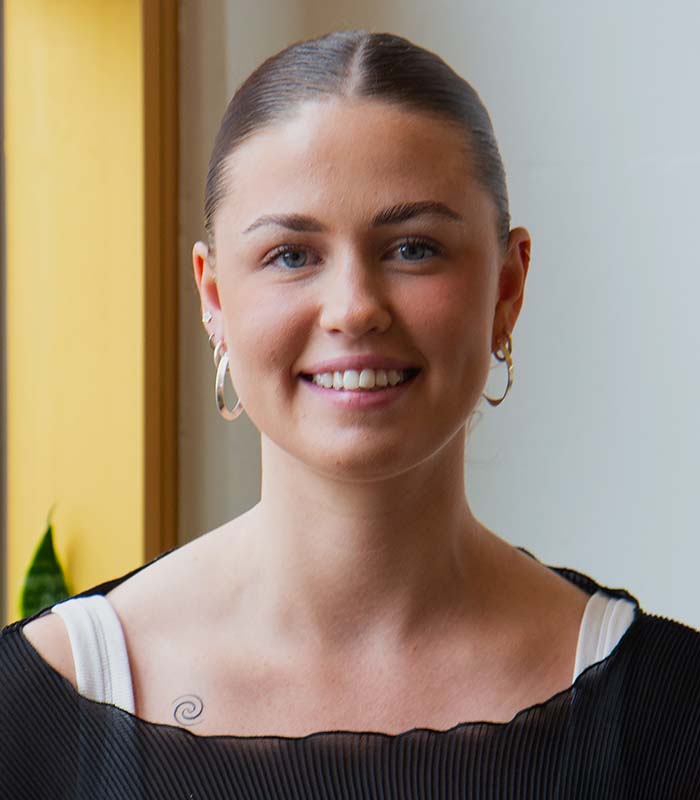Soft music plays throughout the video in the background.
Opens with RMIT University logo and title of program Bachelor of Sustainability and Environment.
Wendy Steele, Professor in Sustainability and Critical Urban Governance, starts speaking.
Sustainability as a concept and as a practice is really critical because it's about future generations. It's about living within our limits. It's about caring for and with the earth which we depend upon. Cities have been an interesting intervention in earth systems. They have brought a lot of joy and comfort to a lot of people, but they've also caused a lot of damage, which is something that we're really seeing in the climate crisis at the moment.
Erica Fridell, ecologist at Environmental Resources Management Australia says, “I've always had an interest in the environment and the natural world since I was little. So, I think that's just something that I've always been interested in. So, it was kind of a natural pathway for me.”
Nooshin Torabi, lecturer and researcher speaks - We look at sustainability from multiple perspectives, not only environmental, but social and political.
Patrick Mathers, a student in the program talks about his experience.
I think the course has essentially allowed me to understand the broader scope of works surrounding the sustainability discipline, whether it be through urban planning, infrastructure development, marketing.
Nooshin says, “And our teaching is informed by the research we do. All of us are researchers here in the Center for Urban Research. So, I teach my students about climate change responses. At the same time, I am doing research and writing about transformative responses that we need to be doing right now in our cities.”
Tori Dunstan, another student, speaks. So, I think it really helped me understand where my passions and interests are because I was able to focus on areas like urban planning, social studies and environmental studies, and sustainability.
Patrick recollects, “I feel like this course prepared me by shifting my discourse and probably my bias towards sustainable initiatives. It's probably provided me the baseline understanding that I'll need going forward outside of uni.”
John Abaid, a past student and now a Program and Policy Officer at Department of Climate Change, Energy, the Environment and Water, recalls, "If I could go back and take another class, I would take another policy class because I really enjoyed them and they're really handy in my career now.”
Hannah Belbasis, Local Government Sustainable Design Officer, also talks about her experience with the program.
My career has always been about placemaking. Prior to my time at RMIT, I held a career as a designer in the housing construction industry for a number of years but I was always very curious about focusing more on sustainability in our planning and design practices. RMIT was very fundamental in supporting and accelerating that journey for me.
Tori says, “The course is full of really passionate peers, and I think it's such a great learning environment. There's so much opportunity within the degree so I think it's so important to just say yes to everything, give everything a go.”
John advices, “Follow your passions, whether that be policy or advocacy or on the ground work. Just follow whatever you're passionate in and remember that small gradual changes can lead to something bigger.”
Background narration goes on and eventually Nooshin comes to screen.
I think what we are doing here in RMIT, we are training change agents. We are training students to have critical thinking skills to go out there and work in diversity of workplaces from not-for-profits to state governments to local governments to businesses.
Wendy Steely wraps up by saying, “This is the critical climate decade. There has never been a time when we need sustainability experts and particularly people focused on acting on climate change. We need those people more than ever right now. So what's great about RMIT is that you're looking at interdisciplinary ways of addressing this. So it's not just about working as a scientist alone, it's working with planners, with engineers, with artists, with policymakers, with landscape architects, and together we find solutions to some of the pressing problems that we face.”
Closing screen with RMIT University logo.






